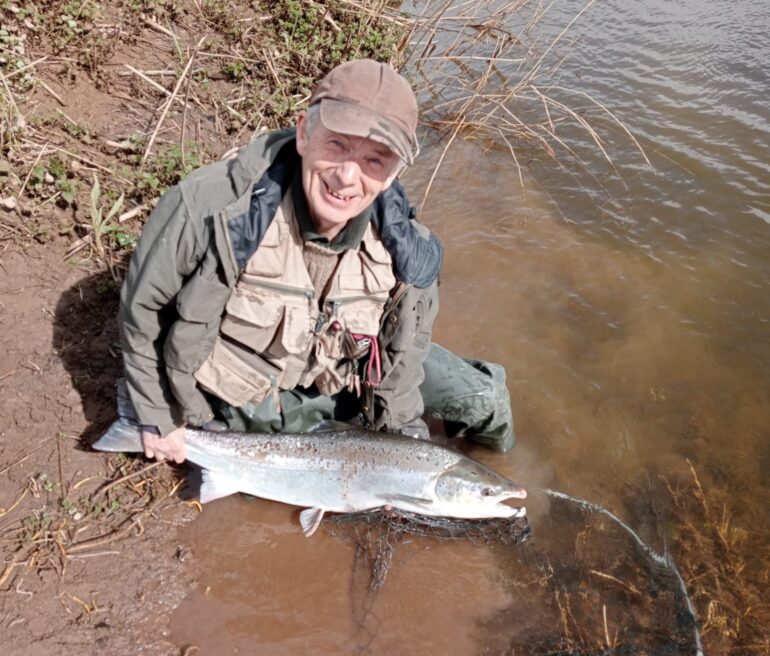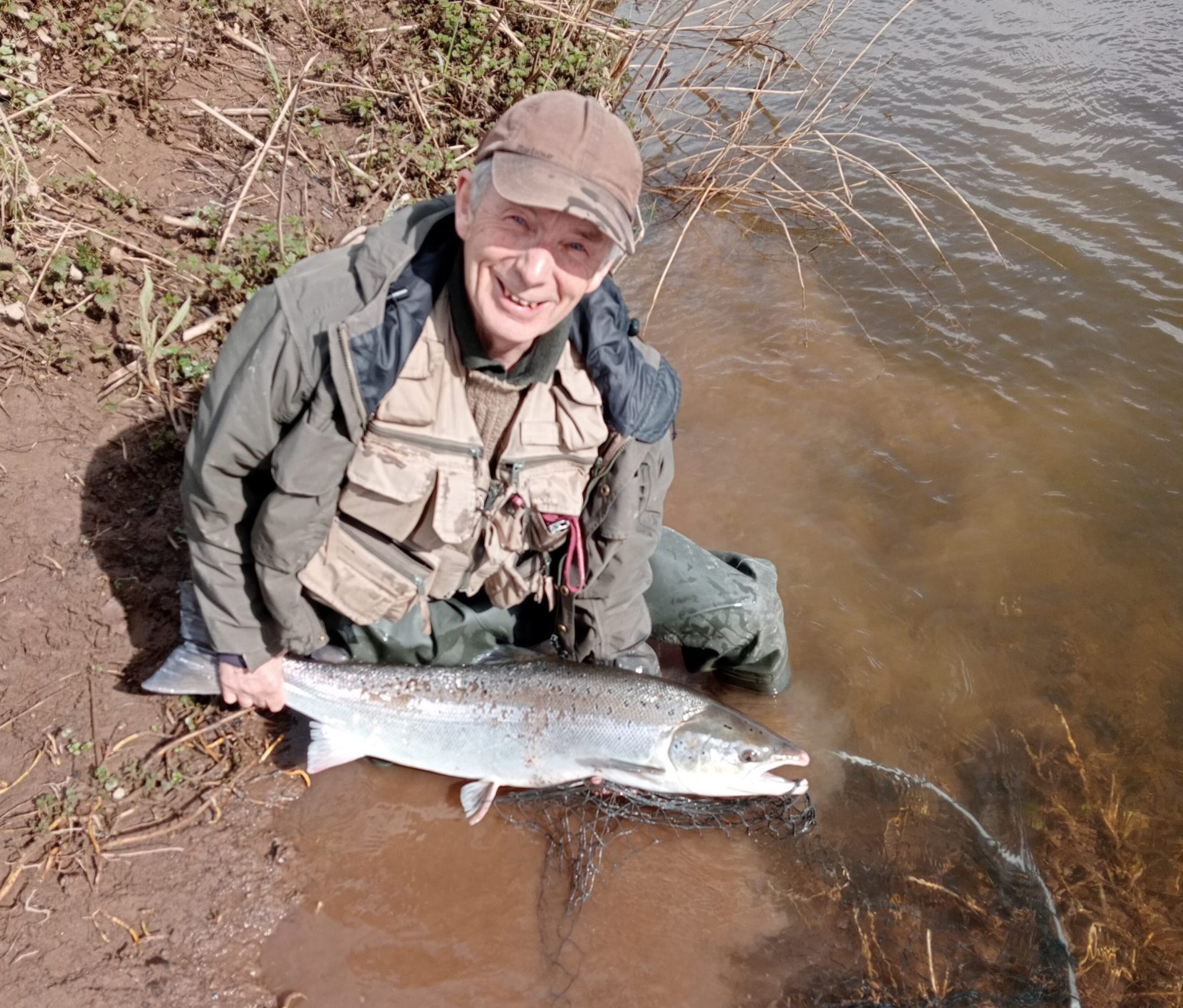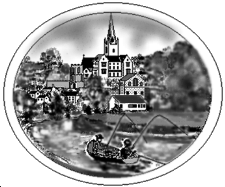
Not a single salmon caught at Ross on Wye in 2024.
Richard Woodhouse salmon representative on ROWAC Committee and salmon fishing veteran writes a scathing roundup of the terrible Salmon fishing season that finished on Thursday 17th October. Pulling no punches he point the finger at Natural Resources Wales and the English Environment Agency for their lax efforts to save the Salmon in the River Wye.
Another disastrous salmon fishing season has drawn to a close for the Wye and particularly for ROWAC, in that no salmon were landed on the club’s waters in 2024. It is not only the Wye that has problems, but all the salmon rivers in the southern half of the UK, and Norway where the authorities closed fishing on many rivers at short notice. Scotland and the northern UK rivers appeared to have fared a little better.
Whilst we can’t do much about the pressures on salmon at sea, there are in river problems here in the UK that could be tackled. But the authorities have turned a blind eye to the ever increasing pollution from sewage, slurry, pesticides and herbicides; the over abstraction by water companies; and farm soil run off from deep ploughing at inappropriate times clogging up spawning gravels, etc. What is needed is to get away from this monoculture big business farming, and get back to farming in sympathy with, rather than against, nature.
Instead the NRW and EA just keep applying more and more restrictions on salmon anglers. Then when catches go down because we can’t effectively fish in all conditions and all types of water, they introduce even more restrictions even though on the Wye we have been 100% catch and release since 2011. NRW have even muted stopping salmon angling all together. Then they will lose their eyes and ears on the river during the coarse fishing close season. It will be even worse on the many Welsh rivers that don’t have any coarse fish. There it will be open season for all sorts of pollution, abstraction and poaching, resulting in potential disaster for what is left of those salmon and sea trout populations. It will also mean the NRW will have no idea of the size of the remaining salmon and sea trout populations as they rely almost entirely on anglers’ catches now that commercial netting is very limited and fish counters are non-existent. But of course with all the rod fishing restrictions gradually applied over the last 20 years, their statistics are already heavily flawed, because year on year they are not comparing like with like.

There is no doubt changes to the climate is having its effects. For this season and the last few years we seem to be experiencing very wet winters and long dry summers. This year was no exception. In March and April when we should have been fishing for the big three sea winter fish for which the river is famous, we were staring at a flooded river which allowed them to run through to the upper reaches where they hunkered down semi-comatose in the deep holding pools until spawning time. Then by end of April when we would have been expecting a run of two sea winter fish, the river was on its bones and what fish there were stayed mainly in the tidal reaches and the lower river below Monmouth. September finally brought relief with some water, but at this stage we were/are restricted to fly only which means a lot of our water at Ross on Wye cannot be fished effectively.
That there are fewer and reducing numbers of salmon is not in doubt. But the effects can be even more significant to angling and hence the NRW’s statistics. Fewer fish means they don’t have to compete for lies so can settle down; and it is unsettled fish that tend to show and take our flies and spinners. Settled fish are best tackled by bait fishing methods. But these are banned on the Wye and severely restricted on other rivers effectively making some water unfishable. All this has seen a considerable reduction in the numbers of salmon anglers and salmon fishing effort.
The effects of method restrictions can be clearly seen on the Usk where bait fishing is banned with an exception of a (ridiculously short) two week window from 1st September to 15th September when prawn and shrimp are allowed. During this window catches suddenly increase with (resident) fish reported on shrimp that had previously ignored all efforts with both fly and spinner. Also on the Wye, looking back at some historic records for Ross Angling Club, shrimp was the most successful method after 15th April when bait fishing was allowed. Worm also figured, but with this method there is a high chance of deep hooking. But there is no reason to ban shrimp as the method requires immediate striking usually resulting in lip hooked fish. It would also open up fishing on many deep water lies during low water periods and attract fish that otherwise wouldn’t be caught, or even betray their presence.


